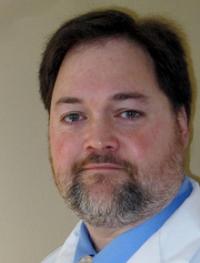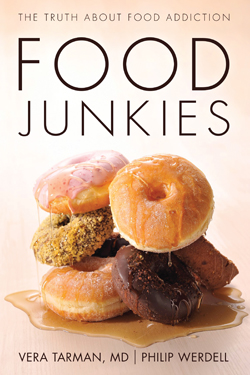10 Words or Less with Darin Detwiler
Submitted on
 Welcome to another text installment of “10 Words or Less,” in which I ask brief questions of interesting people and request brief answers in return. (Previously, I posted the video of our chat; this is the edited transcript, for those who prefer text.) Today’s participant is a food-safety advocate and college instructor in regulatory affairs who formerly operated a nuclear reactor. (I can’t count how many of my friends can say that!) Please remember that “10 Words” is an ethic, not a rule, so please, no counting. If you think it’s easy, let’s see you do it.
Welcome to another text installment of “10 Words or Less,” in which I ask brief questions of interesting people and request brief answers in return. (Previously, I posted the video of our chat; this is the edited transcript, for those who prefer text.) Today’s participant is a food-safety advocate and college instructor in regulatory affairs who formerly operated a nuclear reactor. (I can’t count how many of my friends can say that!) Please remember that “10 Words” is an ethic, not a rule, so please, no counting. If you think it’s easy, let’s see you do it.
Name Darin Detwiler (right)
Born when, where May 19, 1968, San Francisco
Resides "Salem, Mass., known for the Salem Witch Trials, which are allegedly tied to food-borne illness, as the source of the deliria that was perceived as witchcraft."
Job "I have two jobs: Adjunct professor at Northeastern University, where I teach in regulatory affairs of food and food industry. Also, I’m the senior policy coordinator at Stop Foodborne Illness, a national nonprofit that supports victims and their families."
What you wanted to be when you grew up "Actually, two things. I wanted to be a musician, and I wanted to be a seismologist. I really wanted to shake, rattle, and roll."
Your first paying job "When I was in high school, I played a Santa Claus at a mall. [Pause.] It wasn’t that paying."
Wisdom you retain from that experience "Never say to a kid, or ask a kid, about their parents, Mom or Dad. Always say ‘folks,’ because folks is generic, and can apply to adopted or grandparents or foster parents. We go through life thinking everyone had to fit into a cookie cutter, but there are many children who have different family situations."
- Read more about 10 Words or Less with Darin Detwiler
- Michael's blog
- Log in to post comments
 When I was a kid, and maybe still today (I don’t care enough to look it up), Wonder Bread touted that it “buil[t] strong bodies 12 ways.” What was really going on is that its food technologists had started with grain products of nature, “refined” it beyond recognition, and then tossed in a bunch of nutritive additives to make up for what they had taken out. In effect they were saying, “look at all the goodness we’ve added, so you won’t notice all the goodness we took out.”
When I was a kid, and maybe still today (I don’t care enough to look it up), Wonder Bread touted that it “buil[t] strong bodies 12 ways.” What was really going on is that its food technologists had started with grain products of nature, “refined” it beyond recognition, and then tossed in a bunch of nutritive additives to make up for what they had taken out. In effect they were saying, “look at all the goodness we’ve added, so you won’t notice all the goodness we took out.” I’ve been thinking a lot lately about the concepts of “restriction” vs. “freedom.” For me, of course, the context is often around how to eat.
I’ve been thinking a lot lately about the concepts of “restriction” vs. “freedom.” For me, of course, the context is often around how to eat.